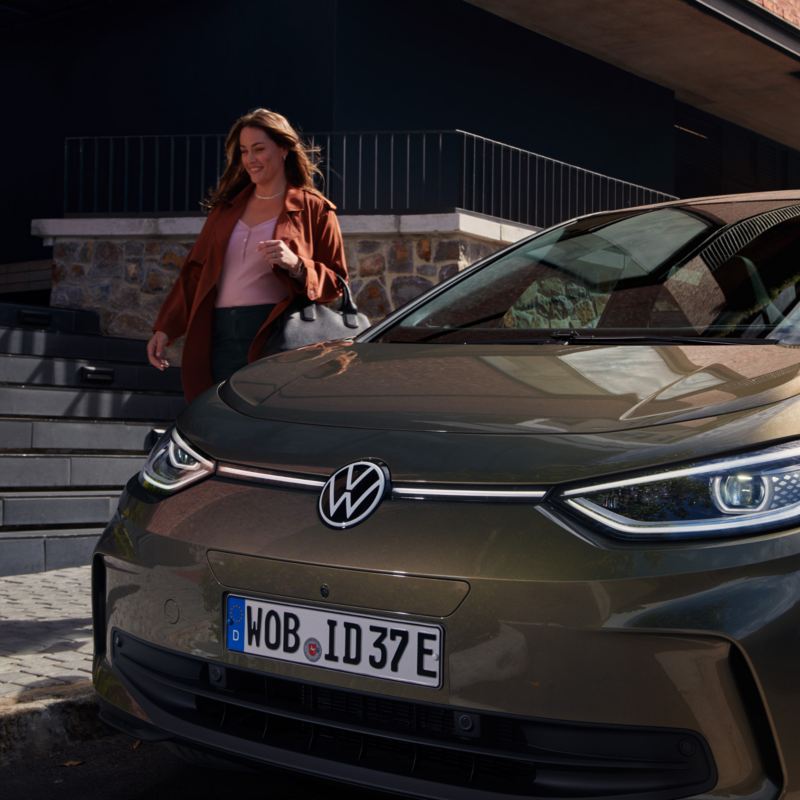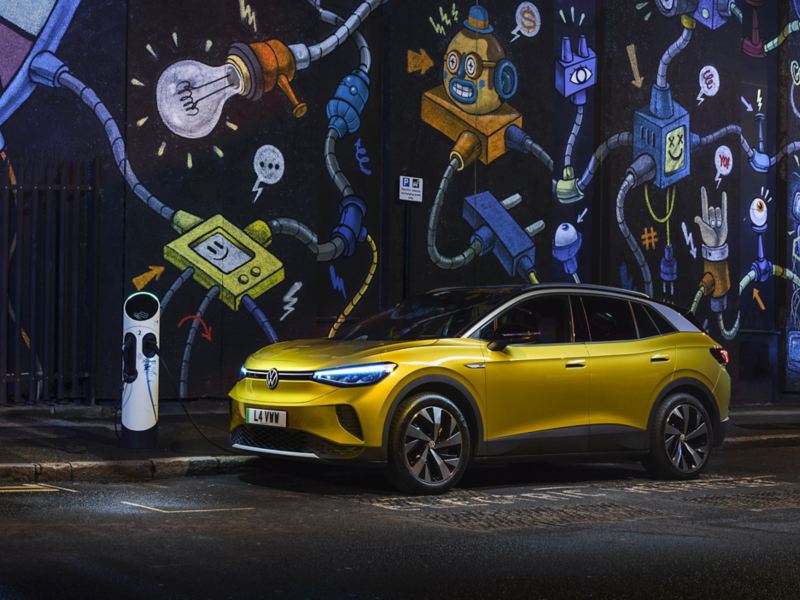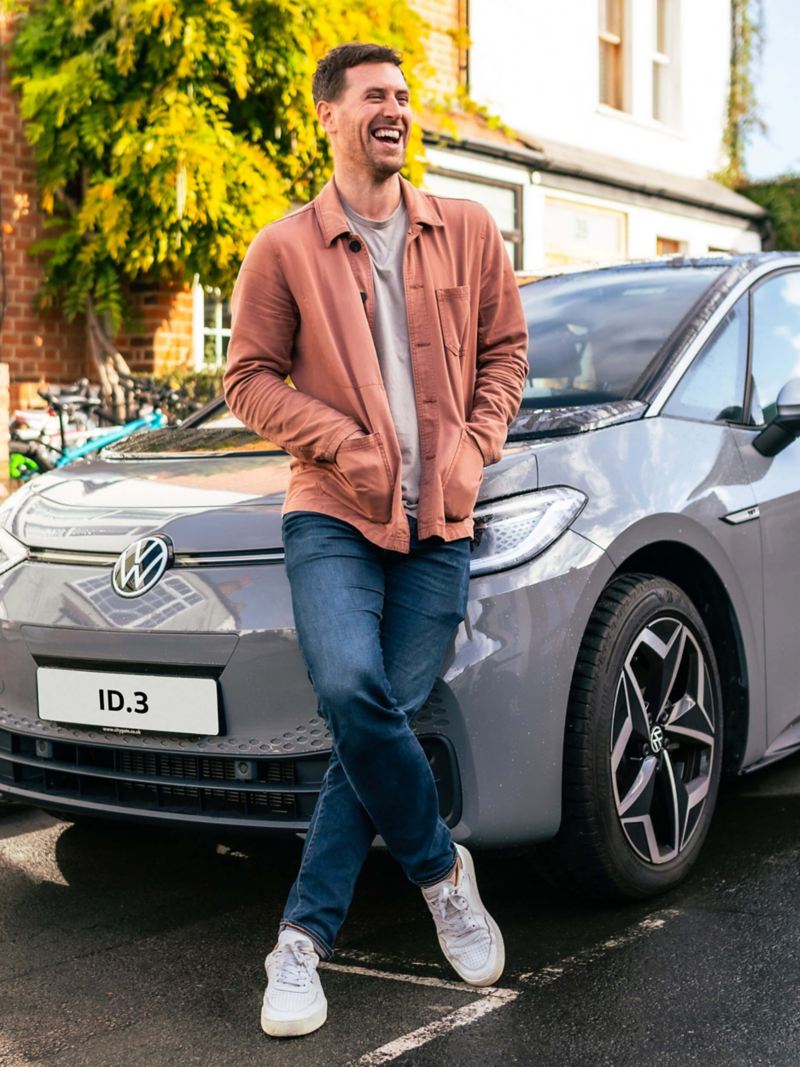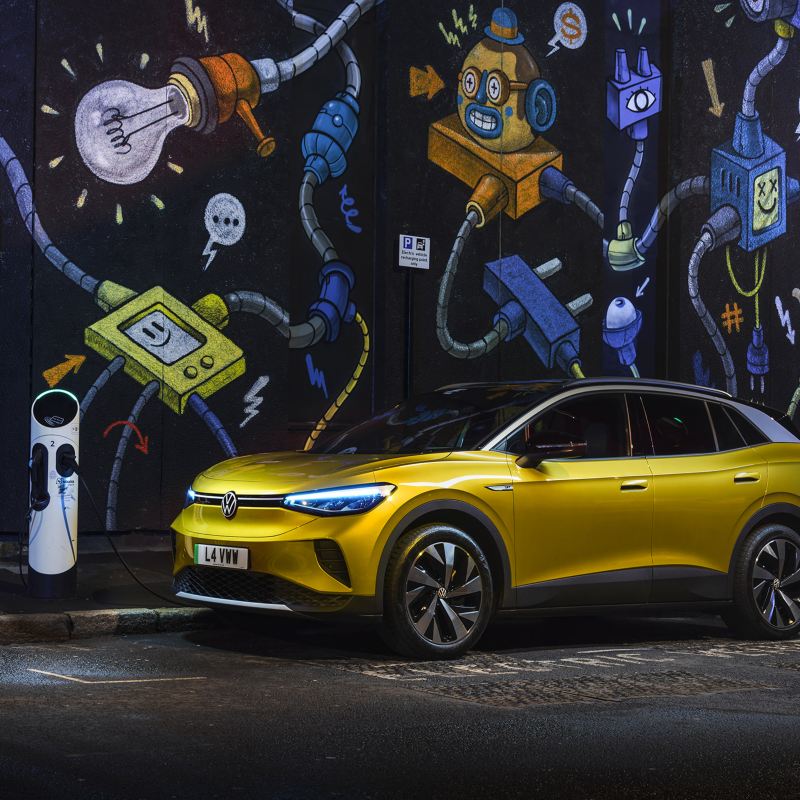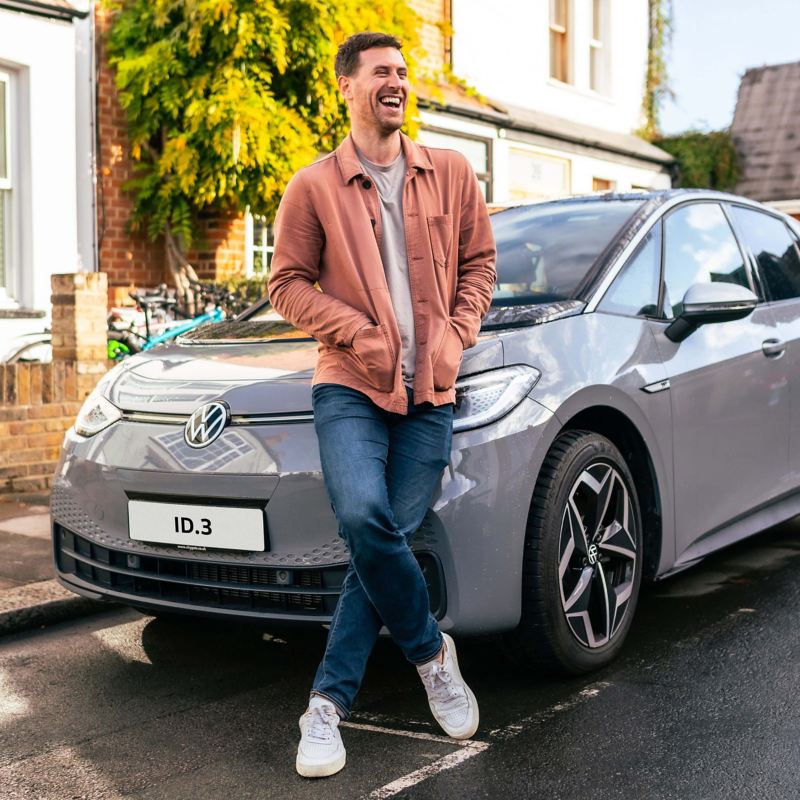Power consumption and range: electric cars have
nothing to hide
Conversations about electric cars often go the same way – there’s always a lot of curiosity about the issues of range and power consumption, and the associated costs.
Find out about consumption and range here:
- In the ADAC test, many electric cars came in with a consumption of less than 20 kWh per 100 kilometres.
- You can charge your electric car at around 43,000 public charging stations, across about 25,000 locations in the UK alone, and the number is rising.
Source as of May 2023: https://www.zap-map.com/ev-stats/how-many-charging-points - Apps and your built-in sat nav will help you to charge on longer journeys.
- Paying at public charging stations is easy, usually via an app or smart card.
If you are interested in an electric car, ultimately you want the electricity costs to be much less than the petrol cost of your previous car. Where you used to have a tank, you now have a battery. You don't use litres anymore; you use kilowatt-hours (kWh). Nevertheless, the general rule is still: the larger your battery, the less often you have to charge your vehicle at a charging station. Many manufacturers offer a selection of batteries with various kWh capacities for their electric car models, thus also giving them various ranges – and the ID.3 , ID.4 and ID.5 are no different.
Faster driving can reduce the range of your electric car
The power consumption of an electric car does, of course, depend on a variety of factors. As with petrol or diesel cars, size and weight play a key role when it comes to range. The same goes for personal driving style – if you like driving fast, you’ll consume more power. This means that your consumption is up to you – or rather, down to your feet. If you prefer to drive in a sportier way, it would be wise to opt for a more powerful battery. It would also be best to get some advice, as a larger battery also weighs more. If you then also follow our power-saving tips, you can reduce your average consumption still further.
An independent institution, the ADAC automobile association measured the actual consumption of electric vehicles in a test in early 2021. The Volkswagen e‑up! (power consumption in kWh/100 km: combined 12.7; CO2 emissions in g/km: combined 0; efficiency class: A+) is one of the most economical models, however, no new orders are being taken. Many electric vehicles are similar in terms of consumption, all needing less than 20 kW/h over 100 kilometres – including the Volkswagen ID.3.
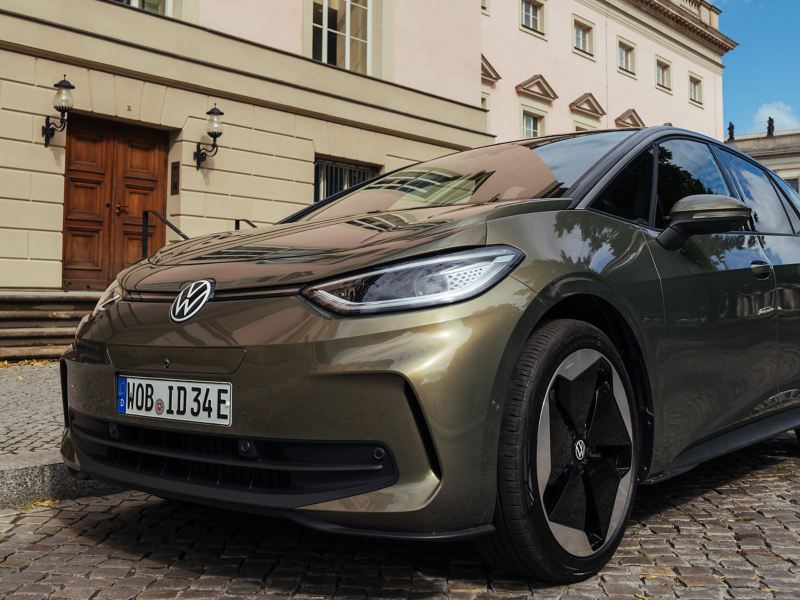
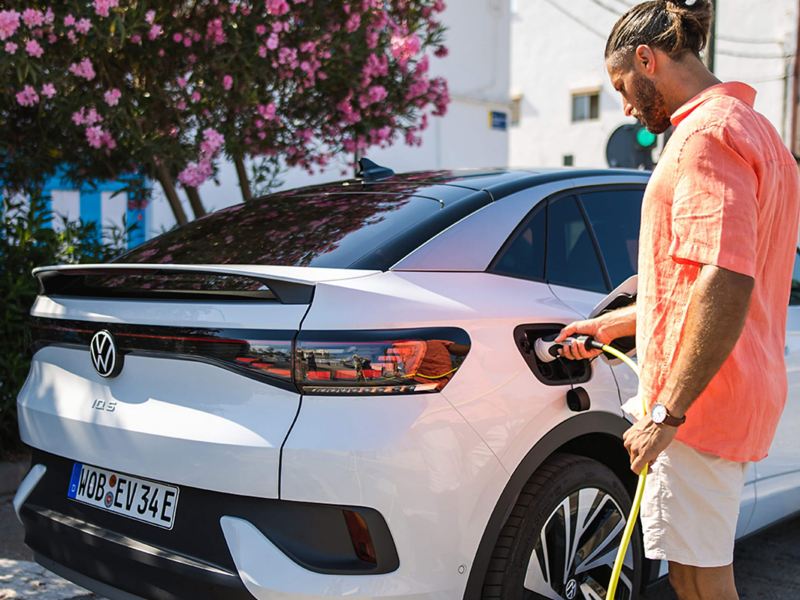
Electric cars – you could save more than a euro per 100 kilometres!
Let's compare the cost of an electric car to the petrol cost of a combustion engine car: currently, the average electricity price is 34 pence per kilowatt hour (kWh). The precise amount depends on your respective contract with your chosen electricity provider. There may also be a standard charge in addition to your total annual consumption. The ID.3 would cost on average under £5 of electricity per 62 miles. The price of petrol fluctuates much more. At the moment, we can assume an average petrol price of £1.40 per litre. Based on an average consumption of six litres per 62 miles, this distance would cost £8.40 at a petrol station. Electric mobility can therefore save money when it comes to consumption. Then there are also other benefits, such as free parking or the use of bus lanes offered by some cities and towns. Plus, the lower emissions and reduced noise have less of an impact on the environment.
Driving your electric car – how to find a public charging station
If you can, you can charge at home either connected to a plug socket or a wallbox. As a wallbox supplies direct current, it significantly speeds up the charging time for your electric car. In both cases, your respective electricity provider will determine your electricity costs.
You’ll also never run out of power when out and about, the expansion of the network of public charging stations for electric cars is gaining more momentum. Your employer might have already installed a charging station to charge electric cars or electric company vehicles. Or maybe you can make use of the time while you're shopping. Some supermarket chains are now offering free energy for your vehicle. You can also now charge in the car parks of larger shopping malls, usually free if you're lucky. Many people usually only travel within their local area on a day-to-day basis. As an electric car owner, you’ll soon learn where you can easily charge. Or you’ll see from the exact charge status display whether you have enough range to get you home and charge there.
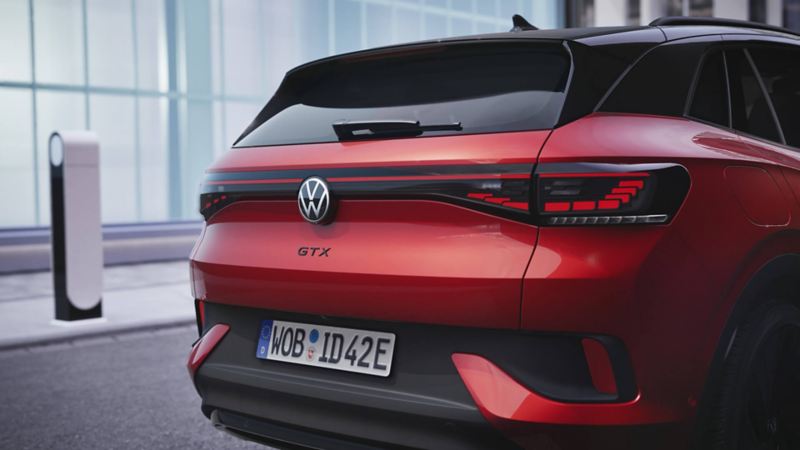
A DC station with a charging capacity of at least 100 kW can charge a 58-kWh battery to 80% in just over 35 minutes.
Enough range to go on holiday in your electric car
Should you need to drive longer distances on occasion, the search function in the Route Planner will help. It shows petrol stations as well as public charging stations. The number of public charging stations across the UK, already around 43,000, demonstrates that your next source of power is never far away. And, as there are already electric cars that have a range of more than 310 miles, depending on driving style and battery size, longer journeys are no problem. This means you can reach the Lake District or Newcastle from London without stopping.
Apart from the navigation system, the Volkswagen “We Connect ID. app” can also help. It always displays the nearest charging station. Volkswagen and other car manufacturers have also joined forces to create IONITY to drive forward the expansion of fast-charging stations across Europe. The charging network is getting ever denser and modern charging stations now take less and less time to charge a car.
A DC station with a charging capacity of at least 100 kW can charge a 58-kWh battery to 80% in just over 35 minutes. This is a great opportunity to take a coffee break or stretch your legs on a longer trip. Once rested, you can then tackle the next stage safely.
Electric cars are fun and are already perfect for everyday use. They are also quite affordable to run due to their potential consumption cost benefits.
